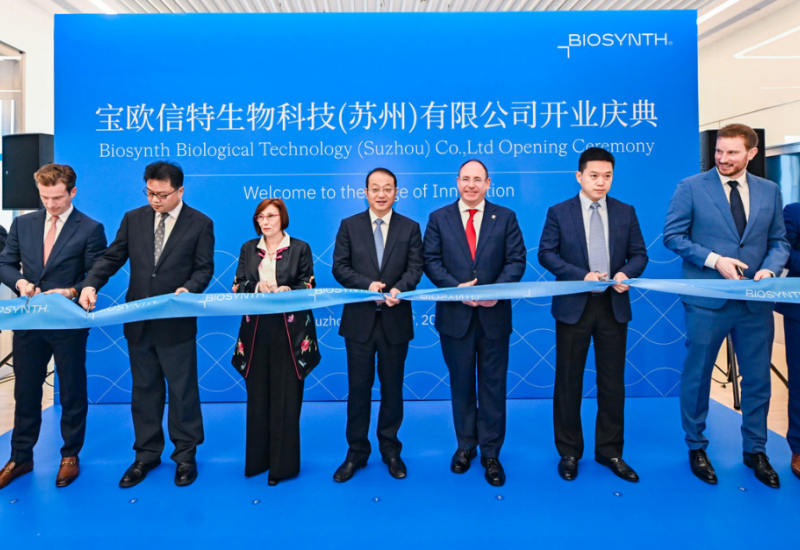Feature article – Covid-19 & a CDMO: A case study
Nicolas Biz, CDMO chief project officer, shows how Seqens rapidly developed production of a key material in the fight against Covid-19
Pending the availability of a vaccine, which will necessarily take time, the race against the clock is under way to identify and develop an anti-viral molecule effective against Covid-19. Research is taking place at an unprecedented speed, with more than 1,900 clinical trials listed worldwide since the start of the pandemic. Of these, 912 are in the process of patient testing.
The challenge is huge, the stakes are high, and speed is of the essence. Facing this challenge, the Seqens teams has mobilised its know-how and skills in the synthesis of APIs, intermediates and precursors, as well as speciality polymers.
How to proceed
All the potential candidate molecules for a Covid-19 drug are identified via systematic compilation of bibliographic analyses, using screening of clinical databases and chemical abstracts. These molecules may be either new chemical entities or molecules already marketed for another therapeutic indication.
The latter path allows the drug to be made available more quickly, the toxicity having already been evaluated in humans. From the mass of potential candidates thus identified, researchers proceed to select target molecules with the potential to improve and accelerate industrialisation, by simplifying and shortening the synthesis stages, and using innovative proprietary solutions.
The central idea is to offer pharmaceutical companies, biotech and public research bodies the most effective solutions but also finding the fastest routes to the market in the context of this severe crisis. In the first phases of R&D and to make its solutions robust, Seqens’s researchers have used expertise across a wide range of applications: organic synthesis, analytical sciences, process engineering, process safety and thermodynamic and kinetic modelling.
All this is combined with proprietary optimisation methods. For as rapid and broad as possible provision of its offer, Seqens participates in the Inova Covid-19 platform, which coordinates all the work of the global players fighting against the coronavirus.
Hydroxychloroquine
Alongside China, France and the US are among the most active countries in terms of Covid-19 clinical trials. Seqens has a very strong R&D and industrial presence in both countries.
Hydroxychloroquine (HCQ) is traditionally prescribed for rheumatoid arthritis, lupus erythematosus (discoid and sub-acute) and lucitis. Its use in trials on Covid-19 patients has been authorised by decree, for instance in France by the Ministry of Health for Lopinavir/Ritonavir since 23 March.
There are now 174 ongoing clinical trials of HCQ for Covid-19. Depending on the results, demand could rise four- to ten-fold. Seqens has developed an offer, including one of the main precursors of the active substance. Our teams are now ready for mass production.
The history began at the Lahr site in Germany. In the 1990s, our teams participated in the development of one of the synthons of the HCQ molecule, via the reaction assembly of hydroxynovaldiamine (HND) and the heterocyclic molecule 4,7-dichloroquinoline.
The precursor is acetyl-butyrolactone allowing the synthesis of a first intermediate, 5-chloro-2-pentanone, which is then reacted with N-(2-hydroxyethyl) -ethylamine. The reaction product is purified by distillation before being hydrogenated under an ammonia atmosphere to obtain HND. The high-pressure hydrogenation capacity of our specialised unit allows the synthesis of the HND side chain under good conditions of safety, quality and yield.
From expertise to practice
From the expertise developed at Lahr, this site and two others in France, at Aramon and Limay, have been mobilised to produce over 150 tonnes/year of HND. Fewer than 30 days were needed to establish the prerequisites in R&D at the Seqens’Lab innovation centre, then to set up a complete industrial infrastructure, facilitating the start of industrial production by the end of Q2.
In addition, Seqens had to cope with the scarcity of precursors to HND due to the limited availability of material, the closing of borders in the main producing countries (India and China) and unprecedented price inflation. In early April, Seqens decided to make these precursors ourselves, in particular chloropentanone and AB-lactone.
Seqens’Lab successfully optimised our existing process for chloropentanone in Germany in less than a week and adapted it to the production capabilities at the Bourgoin-Jallieu site in France. At the same time, the development team at our UK site in Middlesbrough studied the internalisation of AB-lactone. Within a few weeks, Seqens thus cross-linked many technologies and multi-functional expertise, mobilising R&D capacities and industrial capabilities in record time.
Contact
Aline Rancony
Communication Manager
Seqens
+33 6 79 18 53 92
www.seqens.com













